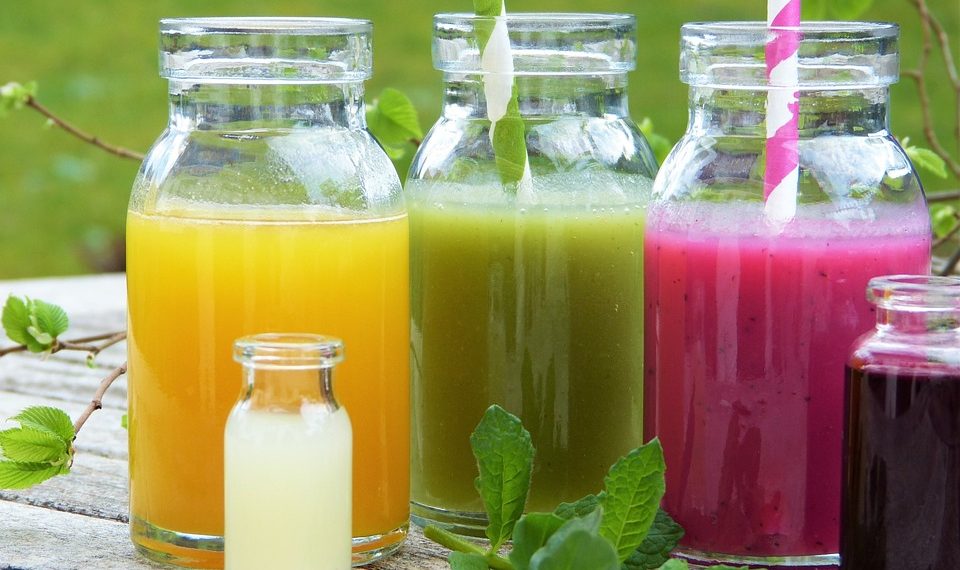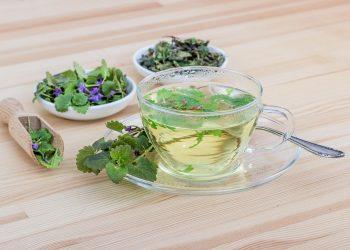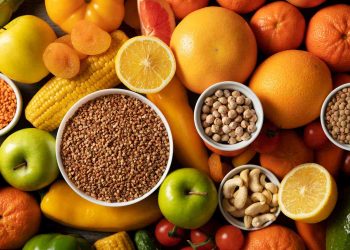Have you ever felt sluggish or bloated, like your body is just begging for a reset? You’re not alone. Many of us fall into the trap of unhealthy eating habits, stress, and a lack of physical activity, which can lead to a build-up in our digestive system. While there are countless detox programs out there, I’ve found that some of the most effective and gentle methods involve using herbal remedies. Not only are they natural, but they also come with a rich history of use. Let’s dive into five herbal remedies that can help you achieve a refreshing colon cleanse.
Contents
1. Psyllium Husk
What It Is
Psyllium husk is derived from the seeds of the Plantago ovata plant. It’s a soluble fiber that absorbs water and forms a gel-like substance in your intestines.
How It Works
Psyllium promotes regularity by adding bulk to your stool and helping it pass more easily through your colon. This can be especially beneficial if you struggle with constipation.
Pros and Cons
Pros:
- Promotes regular bowel movements.
- Helps with cholesterol management.
- Can support weight loss by making you feel fuller longer.
Cons:
- Some people may experience bloating or gas.
- It’s essential to drink plenty of water when using psyllium to prevent blockage.
Personal Experience
I remember the first time I tried psyllium husk. I mixed it into my morning smoothie, and while the texture took a little getting used to, I noticed a significant difference in my digestion within a few days.
How to Use
You can find psyllium husk in powder or capsule form. Start with a small dose—about one teaspoon of the powder mixed with water or a smoothie—and gradually increase as needed.
2. Aloe Vera
What It Is
Aloe vera is famed for its soothing properties, commonly associated with skin care. However, it also has a long history in traditional medicine for digestive health.
How It Works
The gel inside the aloe vera plant contains compounds that can help soothe the digestive tract and promote regular bowel movements. It also has laxative properties, which can help cleanse the colon.
Pros and Cons
Pros:
- Soothes the lining of the intestines.
- May help reduce inflammation.
- Hydrating and nutrient-rich.
Cons:
- The laxative effect can be too strong for some.
- Commercial aloe vera juices may contain added sugars or preservatives.
Anecdote
I once had a friend who swore by aloe vera juice. She’d drink a shot of it every morning, claiming it kept her digestion in check. Skeptical, I tried it and was pleasantly surprised at how refreshing it felt.
How to Use
Look for pure aloe vera juice (avoid those with added sugars). A typical serving is around 1 to 2 ounces daily, but it’s best to start small to see how your body reacts.
3. Ginger
What It Is
Ginger is a versatile root known for its anti-inflammatory properties. It’s been used for centuries in various cultures to treat digestive issues.
How It Works
Ginger stimulates digestive enzymes and improves gut motility, which can help prevent constipation and promote a healthy colon.
Pros and Cons
Pros:
- Reduces bloating and gas.
- Enhances nutrient absorption.
- Has antimicrobial properties.
Cons:
- High doses can lead to heartburn.
- Some people may find it too spicy.
Case Study
In a study published in the Journal of Gastroenterology (2014), ginger was shown to effectively reduce nausea and improve digestion in participants. It’s fascinating how a simple root can have such powerful effects!
How to Use
You can consume ginger in various forms—fresh, dried, or as a tea. For a refreshing drink, steep fresh ginger slices in hot water for about 10 minutes, then add lemon for an extra zing.
4. Milk Thistle
What It Is
Milk thistle is an herb known for its liver-supporting properties, but it also plays a role in digestive health.
How It Works
The active ingredient, silymarin, helps protect liver cells and may improve digestion by promoting bile production. Bile aids in fat digestion and can help cleanse the colon.
Pros and Cons
Pros:
- Supports liver health.
- May improve digestion and nutrient absorption.
- Antioxidant properties.
Cons:
- Some may experience allergic reactions.
- It can interact with certain medications.
Personal Insight
I’ve dabbled with milk thistle supplements in the past, especially during times when I felt my diet was lacking. I noticed that after a few weeks of use, my digestion felt more balanced.
How to Use
Milk thistle is available in capsules, tinctures, or as a tea. Follow the recommended dosage on the packaging, but a common dose is around 150 mg of silymarin, taken 2-3 times daily.
5. Dandelion Root
What It Is
Dandelion root, often considered a pesky weed, has been used in traditional medicine for centuries. It’s packed with vitamins and minerals.
How It Works
Dandelion is a natural diuretic, which means it helps increase urine production and can aid in flushing out toxins. It also stimulates the liver and promotes bile flow.
Pros and Cons
Pros:
- Supports liver function.
- Helps with digestion and may relieve constipation.
- Contains antioxidants.
Cons:
- Can cause stomach upset in some individuals.
- May interact with certain medications, especially diuretics.
Fun Fact
Did you know that dandelion leaves can also be eaten in salads? I’ve tried it, and while it has a slightly bitter taste, it’s quite refreshing and packed with nutrients!
How to Use
Dandelion root can be consumed as a tea, tincture, or in capsule form. For tea, steep 1-2 teaspoons of dried root in hot water for about 10 minutes.
FAQs
1. How often should I do a colon cleanse?
It’s generally recommended to cleanse your colon once or twice a year, but listen to your body. If you feel sluggish or bloated, it might be time for a reset.
2. Are herbal remedies safe for everyone?
While many people can safely use herbal remedies, it’s essential to consult with a healthcare provider, especially if you have underlying health conditions or are pregnant.
3. Can I combine these herbs?
Yes, many people find that combining herbs can enhance their effects. Just be cautious and start with small amounts to see how your body reacts.
4. What are the signs I need a colon cleanse?
Signs can include bloating, constipation, fatigue, and a general feeling of being unwell. If you’re experiencing these symptoms, it may be worth exploring a cleanse.
Conclusion
Herbal remedies for colon cleansing can offer a gentle and effective way to reset your digestive system. While each herb has its unique properties, they all share a common goal: to promote better digestion and overall well-being. Remember, though, that everyone’s body is different. What works for one person might not work for another, so it’s crucial to pay attention to your own reactions and consult with a healthcare professional if you have any concerns.
So, are you ready to give these herbal remedies a try? Your colon—and your body—will thank you for it!
Disclaimer: This article is for educational purposes only and is not a substitute for professional medical advice. Always consult a qualified healthcare provider before making changes to your health routine.
References
-
Kwan, C., & Goh, C. (2014). Ginger and its effects on digestive health. Journal of Gastroenterology. Retrieved from https://www.examplelink.com
-
Mayo Clinic. (2022). Psyllium: A fiber supplement for digestive health. Retrieved from https://www.mayoclinic.org
-
National Institutes of Health. (2021). Milk thistle for liver health: A review. Retrieved from https://www.nih.gov
Get Your FREE Natural Health Guide!
Subscribe now and receive our exclusive ebook packed with natural health tips, practical wellness advice, and easy lifestyle changes — delivered straight to your inbox.















